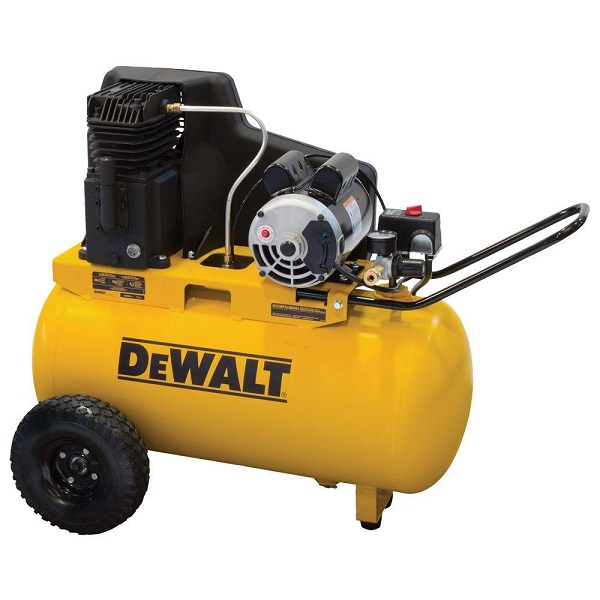If you’re a weekend handyman, adding an air compressor to your toolkit makes many tasks possible or much, much easier. Whether it’s just topping up the sedan’s tires, making painting faster and easier, or just driving nails without tiring out your arm, this piece of gear enables you to do more, faster, and expect a better looking result.

If you are a builder, panel beater, roofing contractor, farmer or any of a dozen other professions, you simply can’t live without an air compressor, and preferably a good one which won’t let you down.
In either case, you are spoiled for choice in today’s market, with portable compressors boasting decent power available for under $ 200, and loads of more powerful models if you have the need and budget.
Whatever you use you air compressor for, your unique needs will be different from those of everyone else. In this article, let’s look at one of the first characteristics you will need to examine before making a purchase choice: what actually turns the motor.
Electric Air Compressors

This is the kind that most hobbyists and many businesses will buy. They are cheaper than their gas-powered cousins, lightweight and reliable. They are perfect for intermittent use, as the motor only runs when the tank pressure drops to below a specified value. This not only saves power but allows the compressor to cool down: a very important factor in how long the unit will last without repairs.
They are convenient in a workshop or factory floor setting, where electrical power is easily available and you don’t particularly want combustion fumes choking your colleagues. Unfortunately, there are some limits to their versatility.
Electric air compressors are energy hogs, typically requiring 15 amp circuits to work at all. Although this will not be obvious to everyone, this also means that using them with an extension cord is an iffy idea, not to mention a possible health & safety violation. Equally, not all generators have the power to drive one.
Taking care of your compressor tends to be simple enough: if the manufacturer specifies a “duty cycle” of downtime vs. uptime, try to give the compressor a rest every half-hour or so. Change the compressor lubricant (and not with ordinary motor oil) every “x” number of working hours, or even choose a self-lubricating oil-less model. Aside from that, just remember to open the drain valve after every use.
In short, they are great for use in your own working environment, cheaper to buy and generally require less maintenance.
Gas Air Compressors

If you took an electric air compressor, stripped out the motor and replaced it with a gas engine, you would have a gas air compressor. There is no other essential difference.
They tend to be bulkier, heavier and less easily portable than electric versions. Of course, they are often more portable than an electric air compressor plus the 100+ pound generator needed to power it, so the practical aspects of its use need to be taken into account.
While some electric air compressors are amazingly quiet, this is just not possible with a gas-powered model. If you plan to do work in a residential or office setting while the building is occupied, this can be a drawback (at least as far as general client satisfaction is concerned). Even if it’s only you and your colleagues who have to listen to the racket, how are you going to deal with the fumes? The motor will be running more or less constantly, emitting carbon monoxide and various types of stuff you don’t want to be breathing. You could try running an air mover alongside it, but in general, gas air compressors are happier outdoors.
Regardless of what what maximum level of power or pressure you need, you will be able to find either an electric or gas model that can handle it. The same is not true for minimum power, though: how much sense would it make to stick a 1 hp two-stroke motor on a compressor? If you only need to drive a few staples, a light electric model will far be more practical.
Finally, maintainability is always an issue when time is money, and a gas engine will always have more issues than a simple electrical motor.
The Take-Away
Gas air compressors are good if:
- You often work at various outdoor locations where reliable electrical power is not available,
- The extra capability of a compressor that can run its motor constantly is needed, such as when using tools such as floor sanders, or multiple tools from the same compressor.
Electric models are for you if:
- Much of your work is indoors, such as detailing or drywalling,
- Noise can be an issue, like in quite neighborhoods or buildings with multiple tenants,
- You’re only going to use it in your garage or workshop, where power is always available where you need it.
